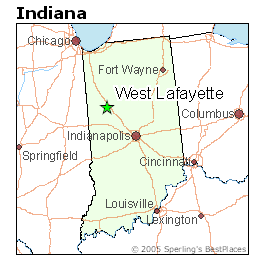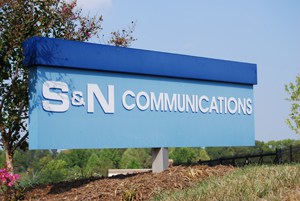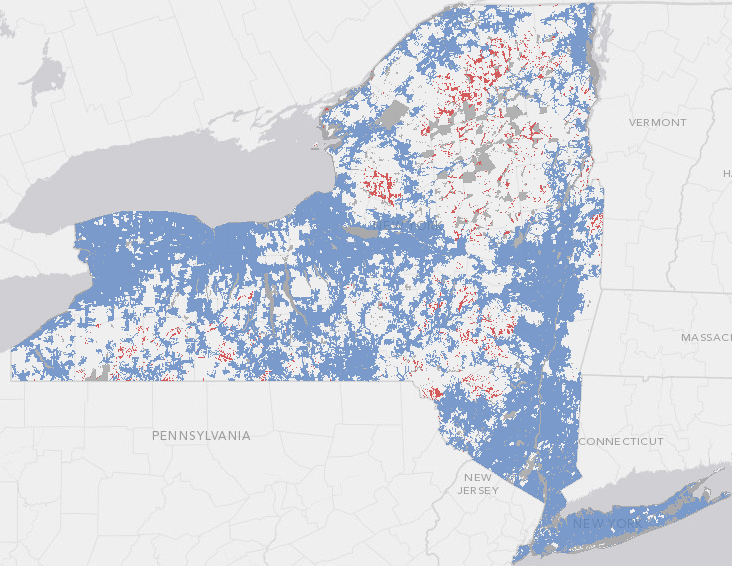 Draft legislation to make life difficult for community broadband in South Carolina has resurfaced this week in the state Senate Judiciary Committee. The legislation, H. 3508, would hamstring communities from setting up fiber networks that are attracting hundreds of millions of dollars of new investments from digital economy businesses like Amazon.com in the nearby state of Tennessee.
Draft legislation to make life difficult for community broadband in South Carolina has resurfaced this week in the state Senate Judiciary Committee. The legislation, H. 3508, would hamstring communities from setting up fiber networks that are attracting hundreds of millions of dollars of new investments from digital economy businesses like Amazon.com in the nearby state of Tennessee.
Lobbyists from AT&T are aggressively pushing the measure, and no doubt Time Warner Cable will also deliver its support.
The protectionist legislation, which delivers all of the benefits to status quo providers like AT&T inside the Palmetto State, guarantees local officials cannot pitch advanced, community-owned fiber networks to companies like Amazon, Google, and other billion-dollar businesses that are expanding across the southern United States.
The implications are so dire, the South Carolina Association of Counties and the Municipal Association of South Carolina vociferously opposed the legislation last year. On the ground in rural Orangeburg County, administrator Bill Clark understands first hand the implications of broadband scarcity. He was shocked to discover the bill considers any connection that achieves the woeful speed of 190kbps would qualify as “broadband,” no doubt to allow AT&T to claim its 3G wireless broadband service already “well serves” the state of South Carolina. If AT&T can demonstrate it delivers at least 190kbps service in South Carolina, even if capped to just a few gigabytes of usage per month, the company can claim South Carolina does not have a broadband problem.
Stop the Cap! readers inside South Carolina regularly complain about the state’s lousy broadband on the ground. Our regular reader Fred in Laurens is stuck between a broadband rock and a hard place, navigating poor service from Frontier Communications, AT&T, and bottom-rated Charter Cable. He can’t wait for a community provider to set up in South Carolina.
Unfortunately for Fred and other South Carolina residents, special interests in the telecommunications industry have gone out of their way petitioning state government to set up obstacles to community broadband while providers do little or nothing to upgrade broadband in the rural corners of the state.
Now AT&T is back to push for even stronger restrictions, and as Chris Mitchell from Community Broadband Networks wrote during last year’s tangle, this legislation will effectively make any local government ownership of telecommunications facilities impossible:
The bill is blatantly protectionist for AT&T interests, throwing South Carolina’s communities under the bus. But as usual, these decisions about a “level playing field” are made by legislators solely “educated” by big telco lobbyists and who are dependent on companies like AT&T for campaign funds. Even if AT&T’s campaign cash were not involved, their lobbyists talk to these legislators every day whereas local communities and advocates for broadband subscribers simply cannot match that influence.
We see the same unlevel playing field, tilted toward massive companies like AT&T, in legislatures as we do locally when communities compete against big incumbents with their own networks. Despite having almost all the advantages, they use their tremendous power and create even more by pushing laws to effectively strip communities of the sole tool they possess to ensure the digital economy does not pass them by.
South Carolina’s access to broadband is quite poor — 8th worst in the nation in access to the the kinds of connections that allow one to take advantage of the full Internet according to a recent FCC report [pdf].
Some of the provisions on display are remarkably transparent for AT&T’s own interests:
No reasonable provider will invest in expensive broadband infrastructure in an unserved area if it must stop providing communications services within 12 months of a Commission finding that a private provider has begun to offer at least 190 kilobits per second to more than 10 percent of the households in the area.
Public sector entities will be subjected to “the same local, state, and federal regulatory, statutory, and other legal requirements to which nongovernment‑owned communications service providers” are held. This is similar language we see in North Carolina and other states, betraying the total lack of ignorance on telecommunications policy among legislators and their staff.
Requiring public communications providers to comply with all applicable local, state, and federal requirements would be appropriate, but requiring them to meet the same requirements that non-government entities must meet would be tremendously time-consuming, burdensome, and costly for public entities. It would also lead to endless disputes over which requirements public entities should comply with and how they should do so. For example, incumbent local exchange carriers, competitive local exchange carriers, Internet service providers, cable companies, private non-profit entities, and other communications providers are all subject to different requirements.
Requiring public communications providers to comply with all requirements that apply to private communications providers will not achieve a “level playing field” unless private providers are simultaneously required to comply with all open records, procurement, civil service, and other requirements that apply to public entities.
Call to Action: Contact these members of the South Carolina Senate Judiciary Committee right away and let them know you oppose H.3508:
(click names of individual members to obtain direct contact information)
Points to Share:
- While South Carolina ponders another bill tying the hands behind the backs of our community leaders, Tennessee’s community fiber network in Chattanooga just helped that state score thousands of new jobs for an Amazon.com distribution center. Amazon is investing hundreds of millions in the state and local economy, creating new high quality jobs. They chose Chattanooga because it had the digital infrastructure at a price that made that community too attractive to ignore. Meanwhile, AT&T and other companies do not offer this level of service without a huge upfront commitment and lengthy delay to provision facilities. That’s time for companies to look to states like Tennessee instead, where they can get the right service at the right price in days, not months.
- South Carolina delivers the country’s 9th worst broadband. What high tech company will consider coming to our state when broadband service is so lacking? Since private providers have had ample opportunity to deliver service themselves, and failed to do so, why can’t local communities decide what is best for themselves, free from special interest interference from big companies like AT&T.
- Why is AT&T setting the broadband bar so low in South Carolina when other states are enjoying fiber to the home service at lightning fast speeds? The bar is set so low at 190kbps, it leaves South Carolina in the dust. Our schools, public safety networks, health care facilities, and economy deserve better and could get a major economic boost from construction of networks similar to that in Chattanooga. If it doesn’t make sense, communities won’t build it. If it does, why are we letting AT&T effectively make the final decision?
- Public broadband does not have to risk taxpayer dollars. Successful fiber networks are being built in communities across the country at no risk to taxpayers.
- South Carolina must compete in the high tech economy. We cannot do that with low speed wireless networks and DSL. H. 3508 is corporate protectionism at its worst and will leave South Carolina without the flexibility to compete with states like Tennessee for future private sector investment. What is more important — protecting AT&T’s incumbent copper wire facilities or attracting hundreds of millions of dollars in investment from private companies like Google and Amazon?


 Subscribe
Subscribe






